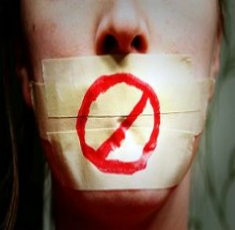
Tabled by: MK Ze’ev Elkin (Likud) in July 2010
According to the original text of this bill, officially titled “Preventing Harm to the State of Israel by Means of Boycott,” anyone initiating, promoting, or publishing material that could serve as an informational basis for a boycott against Israeli products or interests would be guilty of a criminal and a civil offense. The offender would be liable for damages and would have to recompense parties injured by the boycott, as well as being subject to punitive damages of 30,000 NIS without proof of damage. If the offender were a foreign national, they would be barred from entering Israel for 10 years and from conducting business in Israel. As for foreign countries violating the law – Israel would not transfer monies owed to them, and could even compensate damaged parties through these frozen assets. To make matters worse, the law would apply retroactively one full year prior to its passage.
The Ministerial Committee on Legislation debated the bill and rejected the provisions relating to foreign nationals and states, apparently out of concerns for Israel’s international relations, as well as the retroactive application of the legislation (Articles 5, 6, and 8). The revised bill was approved for first reading on 15 February 2011. A request for revision was heard on 28 February 2011, where an alternative text of the bill (prepared in conjunction with legal counsel and the Justice Ministry) was accepted. In this new text, reference to “criminal offense” was removed from the bill, and only someone actually calling for a boycott would be subject to the bill’s provisions, not people merely participating in it. An article was added to the bill stating that the government could disqualify companies participating in a boycott from taking part in government tenders. This new text of the bill passed its first reading in the Knesset plenum on 7 March 2011. In the explanatory notes to the bill, the sponsors declared that they would seek to expand the scope of the legislation and reintroduce the criminal offense provision into the text of the law.
On 27 June 2011, the bill was debated in the Knesset’s Constitution, Law and Justice Committee in preparation for its second-third reading. Bill sponsors and supporters added a new section containing a series of sanctions that would primarily hurt NGOs or companies participating in a boycott: the loss of the NGOs’ “public institution” status and with it the tax-exempt status of donations made to these organizations, as well as the cancellation of benefits to companies or ventures participating in a boycott – benefits established by law encouraging capital investment in companies, support for R&D, and state-sponsored loan guarantees. For example, a business publicly declaring that it would not buy supplies manufactured in the territories would be subject to lose its state-sponsored benefits.
ACRI took an active part in opposition to this bill, since it discriminates against people with a specific political opinion, primarily those who seek to protest against the occupation and the settlements. This bill is another in a series of legislative attempts put forth by the political majority designed to neutralize the political minority that opposes their outlook. The purpose of the law is, first and foremost, to squelch legitimate boycotts against goods produced in the settlements. In so doing, it seriously undermines a means of protest that is non-violent, legitimate, legally recognized and accepted worldwide (including in Israel), while violating the freedom of speech, freedom of dissent, and freedom of association of Israeli citizens.
To read ACRI’s Q&A page, explaining the legal implications of this law, click here.
14 October 2010: Bill passed its preliminary reading
7 March 2011: Bill passes first reading
27 June 2011: Bill is approved for second-third reading by the Knesset Constitution Committee
11 July 2011: Bill passes second-third readings
Status: Bill has been enacted as a law.







